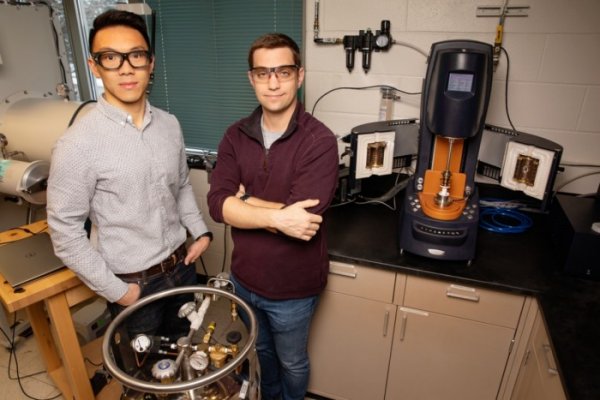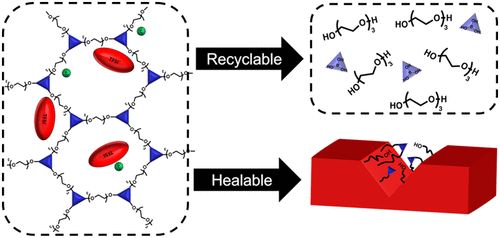In search of a safer lithium-ion battery, a team of engineers at the University of Illinois (UI) proposed a polymer-based solid electrolyte that not only repairs itself, but can also be recycled without high temperatures. By using a special cross-linked polymer, the new electrolyte will become harder when heated, rather than decomposed.

Lithium-ion batteries are one of the successful models of modern electrical technology. Without them, devices from smartphones to electric cars will be impractical-but they are far from perfect. When they go through a regular charge and discharge cycle, they easily form needle-like or dendritic lithium dendrites and grow in the structure of the battery. This can lead to shortened service life or electrical short circuits. In extreme cases, it can also damage the battery itself, causing fire and explosion.
Part of the reason for these explosive failures is that lithium-ion batteries use liquid electrolytes-if the battery is severely damaged, it will chemically react with the electrodes. Brian Jing, a graduate student in materials science and engineering at the University of Illinois, said that solid polymer or ceramic electrolytes have been regarded as alternatives, but they tend to melt at the high temperatures generated inside the battery. One way to solve this problem is to use cross-linked polymer strands to produce rubber-like lithium conductors. It has a longer lifespan than harder solid electrolytes, but it cannot repair itself and is difficult to recycle.

The UI team has developed a method of making crosslinks so that they can produce exchange reactions and exchange polymer chains between them. This means that the polymer will harden when heated and will repair itself, resulting in reduced growth of dendritic lithium dendrites. In addition, the polymer can be decomposed without strong acid or high temperature. Instead, it is soluble in water at room temperature. However, this technique is not yet practical.
Team leader Christopher Evans said: "I think this work provides an interesting test platform for others. We use very special chemical properties and very special dynamic bonds in the polymer, but we think that the platform can be used Reconfigured for use with many other chemical properties to adjust conductivity and mechanical properties. "
The research was published in the Journal of the American Chemical Society.
Forged Steel Ball Valve Components
RSF VALVE is a leading manufactuer of forged steel Ball Valve Components. We have more than 15 year experience in producing forged steel and finish machining ball valve components such as ball valve body, ball valve closure, ball of ball valve, ball valve shaft, ball valve trunnion, gland of ball valve, top adapter of ball valve, support plate of ball valve, injector/plug/drain of trunnion mounted ball valve, etc.
We have our own complete production line of forged steel ball valve components which including forging workshop, heat treatment workshop, machining workshop, and our national laboratory.
Forged Steel Ball Valve Components,Forged Steel Ball Valve Body,Forged Steel Ball Valve Closure,Forged Steel finish machining Ball of API 6D Ball Valve
SUZHOU RSF VALVE CO.,LTD , https://www.rsf-valve.com